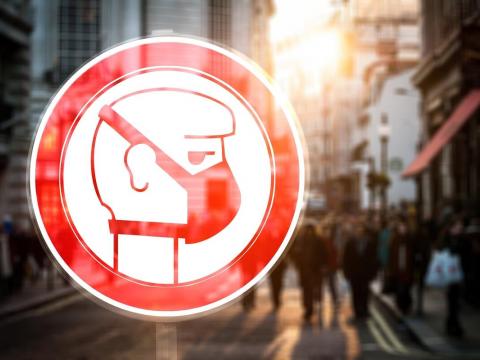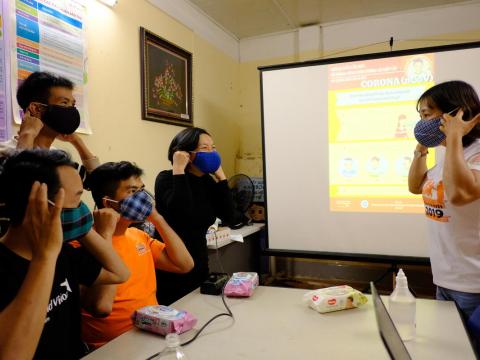Something we have that refugees don’t need: coronavirus
Claire explains why COVID-19 will be so much worse for displaced people
By Claire Beck, Humanitarian Health Nutrition and WASH Director.
As you do all you can to avoid coronavirus, please spare a prayer for the millions in refugee and internally displaced persons camps whose ability to survive and thrive just got even worse, thanks to the COVID-19 coronavirus.
Early in 2019, UNHCR announced that a staggering 70.8 million people had been forcibly displaced over the previous year. That’s more than the total population of the United Kingdom. When these men, women and children arrived in displaced persons camps little did they think their new life would involve avoiding a potentially deadly disease.
Imagine you have been forced to leave your home. You have ended up in a displaced person camp and are eking out an existence in a tent or under a tarpaulin with your extended family for company and, when the winter sets in, warmth. Your bored children’s only joy is playing outside or going to the little school run by one of the aid agencies. You have communal water sources and unpleasant but functional toilets. There is a little market and your husband has a modest job outside the refugee camp. Life is bearable.
Then you hear on the radio that there is a virus like influenza or pneumonia that lots of people are catching, and that older people and those with poor health are at risk of dying. You hear coughing and sneezing through the night from one of the people in the next residence and look with concern at your elderly grandmother. Perhaps this coronavirus has already arrived?
You are told by those who run the camp that the COVID-19 virus is airborne and is spread by coughing and sneezing. To protect you and your family from COVID-19 you need to keep your distance from others—at least a metre. This is practically impossible in a crowded refugee camp—just buying food from the market means queueing with many other people. You must also regularly wash your hands, but the soap rarely lasts all week and you can’t source, let alone afford hand sanitiser.
To stop the virus coming into the camp, the authorities decide to stop most people leaving and entering. Your husband is no longer allowed to travel outside the camp to work so his income dries up. Your children are getting more bored, boisterous and harder to keep in your tent because school attendance has been suspended.
Among those who have fled their homes, many have compromised immune systems. They are often malnourished, stressed and, depending of where they come from, can have chronic diseases such as diabetes and hypertension. Existing poor health gives you and your loved ones greater risk of getting a severe case of the illness and of dying from it.
Treatment for the sick is far from guaranteed; not all countries have free health services for refugees. Eighty percent of them are living in low and middle income countries that are struggling to meet the needs of their own people let alone visitors. In some places UNHCR has developed health insurance packages, but COVID-19 testing and treatment is not always included. Even if it is, treatment at health services can be poor because of xenophobia or just overworked health officials.
For many refugees on the move – such as in the Venezuela crisis – there is the risk that they will become stuck at borders as countries close them to non-citizens and residents. This would place them at risk of other issues, such as violence and other diseases, especially if there is no access to clean water and safe sanitation, and limited access to food.
Experts will tell you that COVID-19 guidance to refugees is not that much different than that being given to the rest of us. But, once again, because of their fragile context, the most vulnerable in our society are likely to suffer the most harm… just when they thought it could not get any worse.

